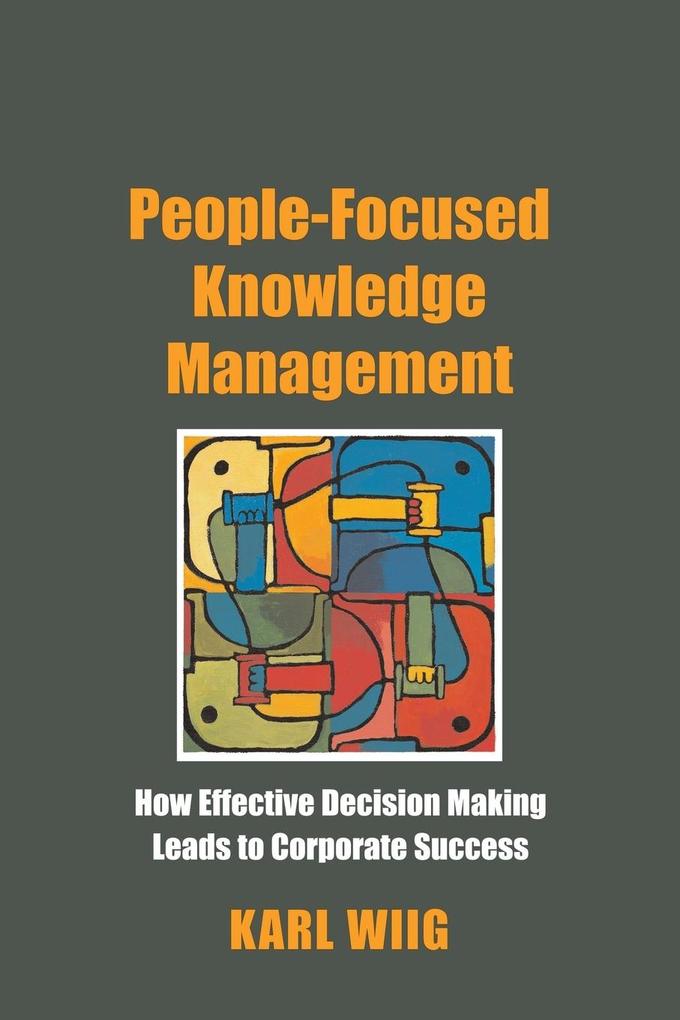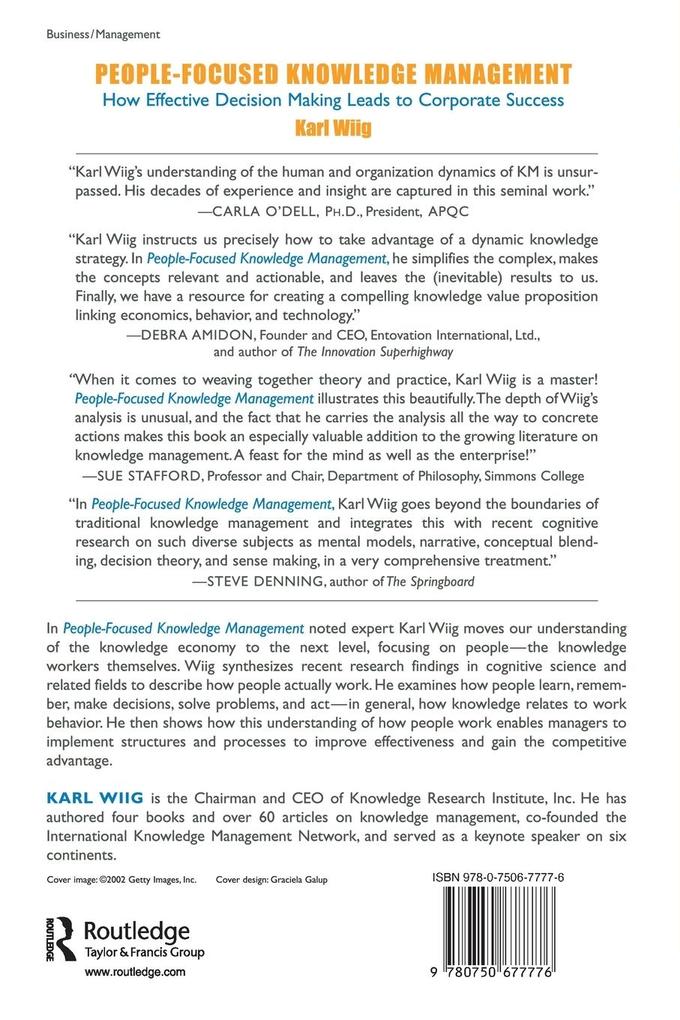The business environment has changed. Sharper competition requires organizations to exhibit greater effectiveness in their operations and services and faster creation of new products and services-all hallmarks of the knowledge economy. Up until now, most of the knowledge management literature has focused on technology, systems, or culture. This book moves to the next stage, to focus on the people-the knowledge workers themselves. Noted expert Karl Wiig synthesizes recent research findings in cognitive science and related fields to describe how people actually work. He focuses on how people learn, remember, make decisions, solve problems and act-in general, how knowledge relates to work behavior. By understanding how people work, managers can improve effectiveness to gain competitive advantage.
Inhaltsverzeichnis
CHAPTER 1 - COMPETING IN THE GLOBAL ECONOMY REQUIRES EFFECTIVE ENTERPRISES; CHAPTER 2 - THE EFFECTIVE ENTERPRISE; CHAPTER 3 - ACTIONS ARE INITIATED BY KNOWLEDGEABLE PEOPLE:PEOPLE MAKE DECISIONS AND ACT USING DIFFERENT KINDS OF KNOWLEDGE; CHAPTER 4 - MENTAL AND STRUCTURAL REFERENCE MODELS; CHAPTER 5 - A KNOWLEDGE MODEL FOR PERSONAL SITUATION-HANDLING; CHAPTER 6 - ENTERPRISE SITUATION-HANDLING; CHAPTER 7 - PEOPLE-FOCUSED KNOWLEDGE MANAGEMENT IN DAILY OPERATIONS; CHAPTER 8 - PEOPLE-FOCUSED KNOWLEDGE MANAGEMENT EXPECTATIONS; APPENDIX A - EXAMPLES OF KNOWLEDGE MANAGEMENT ANALYSIS TOOLS; APPENDIX B - EXAMPLES OF KNOWLEDGE MANAGEMENT PRACTICES AND INITIATIVES; APPENDIX C - KNOWLEDGE CATEGORIZATIONS; GLOSSARY; REFERENCES AND RECOMMENDED READINGS; INDEX













